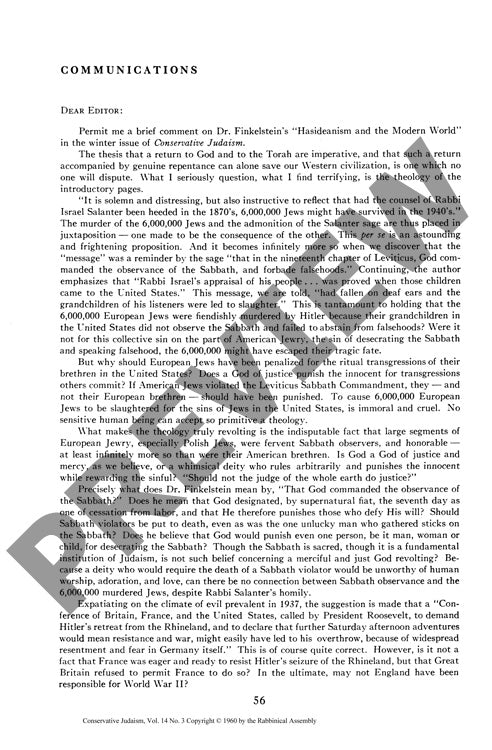Communications
Couldn't load pickup availability
Fundamental disagreements about divine justice, halakhic interpretation, and the role of reason continue to shape Conservative Judaism's theological identity, as revealed through three critical scholarly exchanges. At the heart of these communications lies a contested discourse about how Conservative Judaism navigates between traditional and modern approaches in mid-20th century America. Through critical analysis of published positions and responsive dialogue between rabbinic scholars, the exchanges challenge several key theological frameworks. The first communication confronts Dr. Finkelstein's controversial linking of Rabbi Israel Salanter's teachings to the Holocaust, arguing against a theology that attributes European Jewish suffering to American Jewish religious transgressions. The second examines Rabbi Mandelbaum's three-element definition of Conservative Judaism - spiritual direction, halakhic stringency, and reason-based tradition - exposing methodological inconsistencies and internal contradictions. The third explores pastoral prayer practices among Conservative rabbis in hospital settings, investigating psychological and theological factors that influence informal prayer comfort levels. Together, these communications illuminate the methodological challenges in defining Conservative Jewish identity and practice, revealing persistent tensions between traditionalist interpretations and modern theological approaches.

More Information
-
Physical Description
-
Publication Information
Published 1960
ISBN
-
Publication Credits

